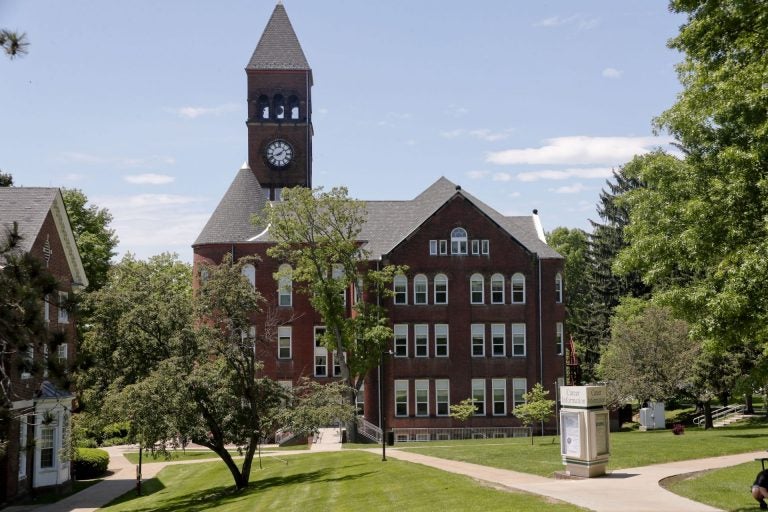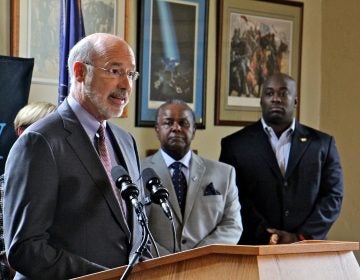State university system to offer incentive to get more faculty to retire this year
The 14 Pennsylvania state universities hope to reduce the number of university faculty members by offering an incentive for professors eligible for retirement.

In this photo made on Friday, May 24, 2019, Old Main is shown on the campus of Slippery Rock University in Slippery Rock, Pa. (Keith Srakocic/AP Photo)
The 14 Pennsylvania state universities hope to reduce the number of university faculty members by offering an incentive for professors eligible for retirement.
State university student enrollment has declined by 20 percent over the last decade. Spokesperson Dave Pidgeon said the incentive is part of the system’s plan to turn around finances.
“A foundational part of that reform agenda is aligning costs with revenues and finding creative solutions to meet that goal,” he said.
The State System of Higher Education’s governing board on Thursday approved the plan to align staffing with the decrease in student enrollment. The incentive increases the maximum number of unused sick days retirees can be paid out for from 50 to 125.
Two hundred faculty members have to sign up to retire in 2020 in order to make this plan cost-effective.
Pidgeon says between 120 and 130 faculty typically retire in a year. Faculty members have to decide by March 2 to take the incentive. If the plan does not reach 200 members, those who signed up may rescind their decision by April 10.
According to a letter from the union, the sick leave payout is temporary. The system implemented a different phased retirement program last year.
The system froze tuition this summer for the first time in 20 years. State System Chancellor Dan Greenstein at the time said he hoped the hold would send a message to the state’s General Assembly that the system is in financial trouble and can’t rely on raising tuition to fix the problem.
The system faces a $60 million dollar shortfall. Greenstein said he expects the system’s redesign plan to create significant savings.
The Associated Press contributed to this report.
WHYY is your source for fact-based, in-depth journalism and information. As a nonprofit organization, we rely on financial support from readers like you. Please give today.




